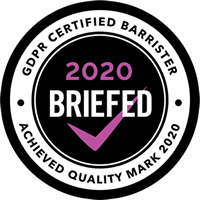“Momentous” Supreme Court ruling on directors’ duties to act in creditors’ interests Andrew Thompson KC appearing for the Appellant
11th October 2022
“Momentous” Supreme Court ruling on directors’ duties to act in creditors’ interests
Andrew Thompson KC appearing for the Appellant
The Supreme Court has given its much anticipated judgment in BTI 2014 LLC v Sequana SA [2022] UKSC 25.
Lady Arden described it as a “momentous” decision for company law.
A full analysis of the case will follow shortly, but here is an immediate summary of its practical impact.
Since the mid-1980s, courts have recognised the existence of a duty on directors at least to consider the interests of creditors where the company is insolvent or approaching insolvency, but its precise scope and application have remained unclear. There is now much greater clarity.
Existence of the duty: the Respondents argued that the duty does not exist in English law, but the court held unanimously that it does, the majority on the basis that its existence is recognised by s172 (3) Companies Act 2006.
Nature of the duty: it is not a freestanding duty, but a modification of the primary duty owed by directors to the company to promote the success of the company under s172 (1) Companies Act 2006, so that, rather than pursuing the success of the company for the primary benefit of members generally, directors are required to do so for the benefit at least in part of creditors generally (see below). As has long been recognised, it is not a duty owed directly to creditors, which creditors can enforce, but a duty owed to the company.
Trigger: the majority held that that modification is triggered by (1) the company being insolvent (balance sheet or cashflow) or bordering on insolvency (which means that a state of insolvency is “just round the corner and going to happen”) or it is likely (more probable than not) that the company will go into insolvent liquidation or administration, where in each case the directors know or ought to know that that is the situation. Note the distinction between a state of insolvency and going into a formal insolvency process.
Content of the duty: the majority held that, in pursuing the success of the company, directors are required to consider the interests of creditors along with those of members (balancing the two sets of interests where they conflict). The weight to be given to creditors’ interests increases as the company’s financial position worsens, until, where insolvent liquidation or administration is inevitable, shareholders’ interests cease to have any weight and the company’s interests are to be treated as equivalent to the interests of creditors generally.
Dividends: the court held unanimously that, notwithstanding the existence of a specific statutory regime governing distributions to shareholders in Part 23 of the Companies Act 2006, the modified duty does apply to decisions in relation to distributions to shareholders.
Ratification: the court unanimously recognised the parallel development of the law of ratification and directors’ duties (a modification of directors’ duties in favour of creditors would be of limited value if any breach could nevertheless still be ratified by the shareholders); and the majority approved the principle that ratification by shareholders is not effective at a time when the company is already insolvent or the implementation of the relevant decision would render it insolvent.
Andrew Thompson KC appeared for the Appellant, BTI, leading Ciaran Keller of Essex Court Chambers instructed by Kevin Lloyd and Richard Lawton of Hogan Lovells International LLP.



